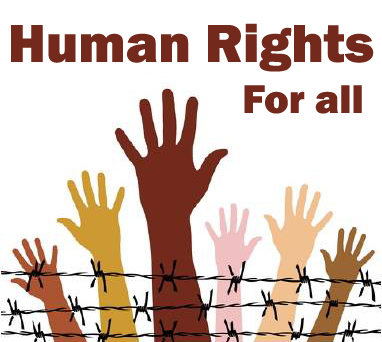Deadline: 15 January 2017
The Council of Europe’s (COE) is now accepting expressions of interest from non-governmental organisations, public institutions and/or networks to organise training courses in 2017. The national training courses in human rights education are an integral part of the programme on human rights education with young people of the Youth Department of the Council of Europe and aim to contribute to the development and accessibility of human rights education in member states.
The national training courses should aim at training key multipliers in human rights education (youth workers, trainers, teachers, teacher trainers, peer educators, etc.) on how to plan, implement and evaluate human rights education activities based on the approaches laid out in Compass. The national training courses should also be a chance to advocate and learn how to advocate for human rights education at national and local level, and should contribute to the establishment of national networks of practitioners and their sustainability.
Project Priorities
Projects should include training course proposals which consider the following:
- development of the competences (knowledge, skills, attitudes and values) of key multipliers in human rights education with young people such as youth leaders, trainers, youth workers, teachers and teacher trainers.
- ensure that the follow-up of the training course includes measures to support the development or strengthening of national networks of organisations and trainers/multipliers involved in human rights education with young people.
- assure that the programme and methodology of the training courses is based on the approaches outlined in Compass. An introduction to Compass and its approaches; experience in using the manual and how to adapt it to the participants’ contexts should be central to the course.
- secure means for having the participants in the training courses provided with copies of Compass in their language(s), where this is possible.
- build the program of the training course in a way that includes a reflection on the Council of Europe Charter on Education for Democratic Citizenship and Human Rights Education and the role of participants, and their organisations, in using it as an instrument for advocacy.
- envisage linking with and building upon previous initiatives, projects and programmes on human rights education with young people at national level. When designing selection procedure for participants should foresee recruitment from a diversity of organisations and institutions.
- consider space for cooperation with and inclusion of the work of the national coordinators of Education for Democratic Citizenship or other relevant bodies in charge of supporting the implementation of the Council of Europe EDC/HRE Charter;
- make sure that participants are committed to carry out further activities and projects in human rights education and are in a position to do so within their organisations or institution;
- ensure the courses have a minimum duration of 4 consecutive working days;
- have a minimum number of participants of 15 and a maximum of 40.
Budget Available
Selected applications can receive three lines of support:
- Educational advice typically through a contracted trainer or direct involvement of an Educational advisor
- Financial support up to 6900 euro
- Institutional support.
Eligibility Criteria
In order to be eligible for a grant, an applicant must:
- be one of the following: non-governmental youth organisations and/or other non-governmental organisations; governmental organisations primarily those focused on human rights, youth and/or education; institutions involved in human rights education; national networks of human rights activists and/or human rights educators.
- be legally registered in a state party to the European Cultural Convention and/or in Kosovo
- be entitled to carry out the activities described in its project proposal;
- have sufficient financial capacity (stable and sufficient sources of funding) to maintain its activity throughout the period for which the grant is awarded and to participate by way of its own resources (including human resources or in-kind contributions);
- have sufficient operational and professional capacity, including staff, to carry out activities described in its project proposal;
- have a bank account.
How to Apply
Each application shall contain:
- the completed and signed Application Form;
- aprovisional budget
The application documents must be submitted via email.
Eligible Countries
Albania, Andorra, Armenia, Austria, Azerbaijan, Belgium, Bosnia and Herzegovina, Bulgaria, Croatia, Cyprus, Czech Republic, Denmark, Estonia, Finland, France, Georgia, Germany, Greece, Hungary, Iceland, Ireland, Italy, Latvia, Liechtenstein, Lithuania, Luxembourg, Malta, Moldova, Monaco, Montenegro, Netherlands, Norway, Poland, Portugal, Romania, Russia, San Marino, Serbia, Slovakia, Slovenia, Spain, Sweden , Switzerland, The former Yugoslav Republic of Macedonia, Turkey, Ukraine, United Kingdom and Kosovo.
For more information, please visit National Training Courses in Human Rights Education.
